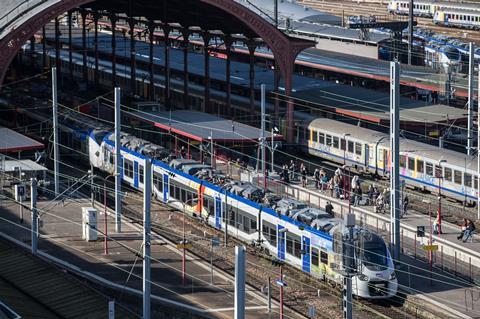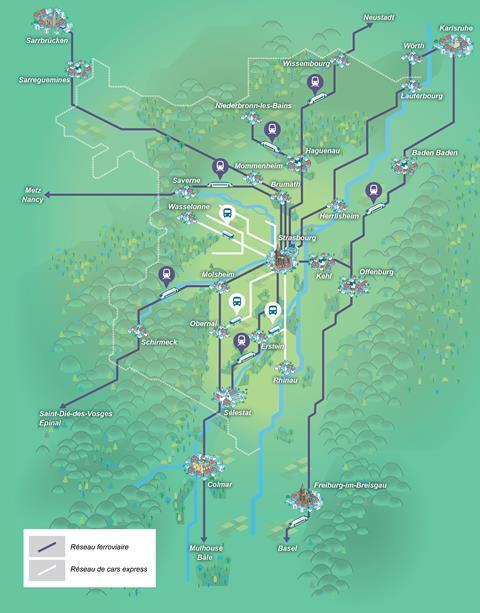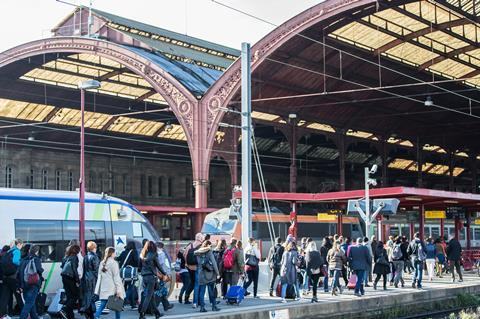
FRANCE: Passengers travelling in the Strasbourg area now have access to a much improved network of local rail services with effect from December 11 when the Réseau Express Métropolitain Européen was launched by local authorities and national operator SNCF.

Driven by a partnership of the Eurométropole Strasbourg and the Grand Est Région, the REME project is billed as the first true RER service outside the Paris area.
At the heart of the scheme is a substantial increase in the number of local rail services operating at regular intervals and the introduction of express buses using reserved bus lanes as well as improved interchanges.
These improvements are the fruit of an agreement signed by the two bodies in 2021 which was based on policies proposed as part of the Grenelle des Mobilités in 2018.
Speaking at an event in Paris on November 7 attended by SNCF President Jean-Pierre Farandou and Transport Minister Clément Beaune, Grand Est Région President Jean Rottner promised that the REME project would change travel habits. He also underlined the European aspect of the scheme which offers enhanced cross-border services to and from the German towns of Karlsruhe, Offenburg and Baden Baden.
President of the Eurométropole de Strasbourg Pia Imbs outlined the environmental rationale behind the scheme, which aims to achieve a significant reduction in carbon emissions and to limit the use of fossil fuels. Rail and other public transport services to and from the surrounding region are intended to be ‘credible alternatives’ to the private car, she explained, warning that it was essential to reduce the impact of private cars on health and the environment.
Transport Minister Clément Beaune described the REME project as ‘exemplary for intermodality with an exceptional service offer’. Noting that the network had been established in record time, he suggested that similar RER operations ‘adapted to local realities’ could be introduced in other city regions across France. On November 27, President Emmanuel Macron suggested up to 10 cities could benefit; the national Conseil d’Orientation des Infrastructures is expected to offer formal advice later this month as to how and where the expanded RER programme could be taken forward.
Cross-city links

The first stage of the Grand Est project sees the operation of up to 120 additional trains per day on weekdays, including the introduction of through trains between Saverne and Sélestat. Half-hourly interval services will in due course be implemented on all REME routes with some services overlapping to provide 15 min interval departures at 13 principal stations. Additional trains will operate from 05.00 on weekday mornings and until 23.00 in the evenings. Weekend services will also be stepped up to give an overall increase of 43% in the number of trains operated on REME routes, equivalent to an extra 800 local services per week.
Planning for the scheme has been underway for the last four years. Physical works needed to implement the enhanced timetable included the laying a fourth track over the 10 km between Strasbourg and Vendenheim at a cost of €120m. A further €1bn is to be spent on raising capacity and improving frequency and reliability on REME routes as the concept is developed over the next five years.
The Grand Est regional authority is procuring a batch of 30 Régiolis battery-electric multiple-units to operate the enhanced services; thanks to financial support from neighbouring Saarland these are being equipped for operation in Germany.

















